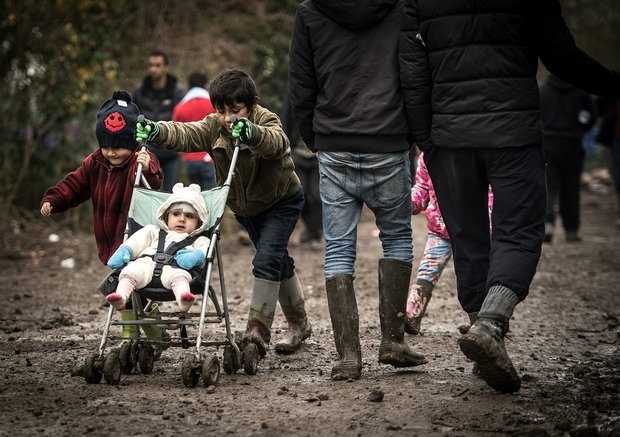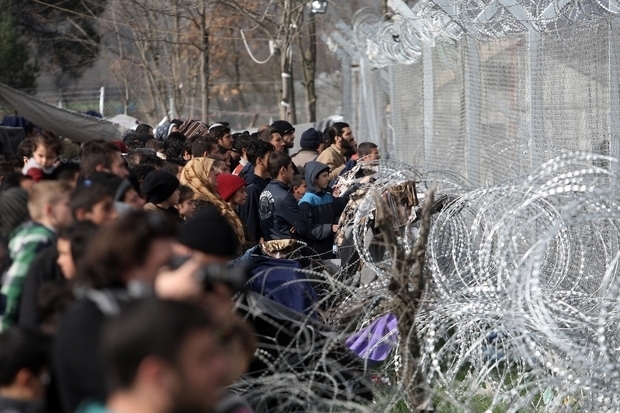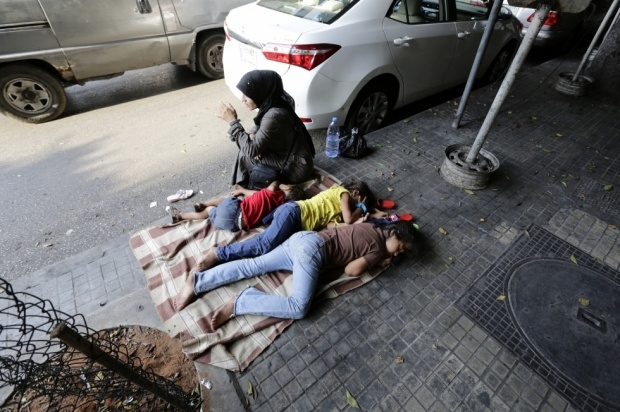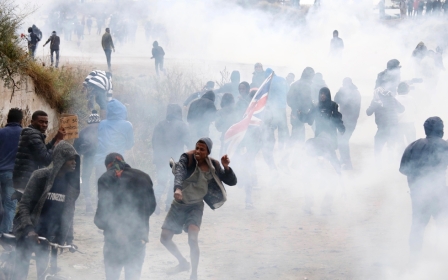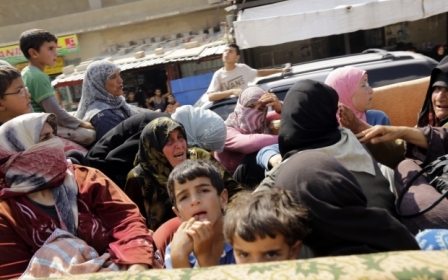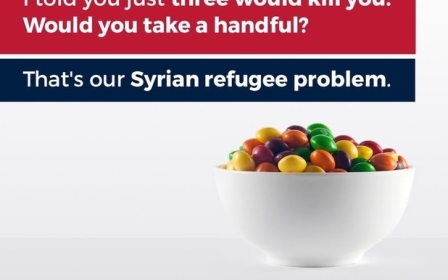'At least in Syria we are still seen as human beings': The real refugee crisis
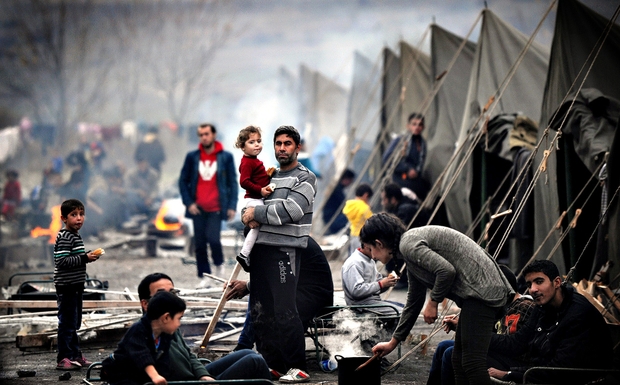
As France proceeds with preparations to dismantle the Calais refugee camp, which currently houses more than 10,000 people, the Guardian reports that “incidents of self-harm and depression among children in the… camp are increasing as the mental health of unaccompanied minors deteriorates in advance of the site’s demolition”.
According to aid worker testimony cited in the article, a “psychological collapse” is being witnessed among many child refugees. Some unaccompanied minors had reportedly “talked about killing themselves, such was their despair over the camp’s future”.
It’s hardly surprising that, in situations in which humans feel completely and utterly helpless to control their environments, harming or even eliminating oneself is one way of exerting a semblance of control.
Of course, it doesn’t help when the outside world reacts with a psychological condition of its own - total insanity - in dealing with refugees. Forget empathy; there is no time for petty humanity when refugee hordes are threatening the sacrosanct boundaries of Fortress Europe and other entities, propelling local panties into a hysterical and xenophobic bunch.
In many places, the very condition of being a refugee has undergone a de facto criminalisation - which naturally only adds to the mental anguish refugees have already accrued fleeing their previous homes on often life-threatening journeys.
World Mental Health Day, observed annually on 10 October, would thus seem an appropriate time to once again highlight the fact that the real “refugee crisis” is the crisis faced by refugees themselves and not by the states frantically trying to repel them.
No green grass anywhere
The short documentary film The Border, directed and produced by Irish peace activist Caoimhe Butterly, offers an on-the-ground glimpse of life in European refugee camps - and of the predicament of so many people confronted with solely undignified life options.
In one section of the film, an older Syrian woman at the now-shuttered Idomeni camp on the Greek-Macedonian border cannot speak at first on account of the fact that she is crying. When she recovers, she tells the camera that “at least in Syria we were still seen as human beings”.
But rather than a grass-is-always-greener situation, it’s more of a no-green-grass-anywhere scenario for many refugees.
The Border goes on to note that, at the time of the film’s release this year, “over 50,000 other women, men and children remain[ed] in limbo in camps across Greece” alone, and that, “with the securitisation and militarisation of European borders, the futures of those seeking refuge and lives of less precarity become more and more uncertain”.
Continued limbo and uncertainty are, of course, major impediments to not only physical, but also mental health and wellbeing.
There I spoke with a young, conspicuously ill man who explained that he had fled his homeland - notorious for its sometimes slavery-esque military service and forced labour practices - after participating for eight years in the army with no end in sight. But now he was stuck in Hitsats with no opportunities for employment or onward movement, and he had not communicated with his mother since the previous year.
His final assessment was that, although conditions in Eritrea were bad, conditions in Ethiopia were also bad.
In Italy last year, I spoke with another young Eritrean man in Rome who had also fled military service and who alleged that, in Eritrea, “the only thing you can hope is to get out”. However, he acknowledged that, had he known how harrowing the journey across Africa and the Mediterranean to Sicily would be, and how unwelcoming the Italian reception, he would have thought twice about departing.
‘Dead already’
In addition to the uncertainty about their own futures, another frequent contributing factor to mental strife among refugees is a lack of information about the fates of close relatives, as families are separated by war and migration.
In 2015, I paid a visit to Lebanon’s Bekaa Valley, now home to a substantial portion of the country’s Syrian refugee population, in the company of Rima Makki, the mental health activity manager for Doctors Without Borders (MSF) in Lebanon.
As Makki explained to me, in the case of Syrians with family members that had disappeared, the very fact of not knowing what to cope with psychologically could be “traumatic in itself”.
During this particular Bekaa Valley excursion, I talked with an old Syrian man residing in one of the area’s numerous tented settlements who had some additional thoughts about matters of death.
As he saw it, there was nothing surprising about young Syrians leaving the refugee camps to board “boats of death” to Europe - because the refugees saw themselves as basically dead already.
To be sure, Lebanon hasn’t made much of an effort to make life anything less than exceedingly uncomfortable for its guests fleeing the horrors of Syria. In their current so-called “refuge”, Syrians have had to contend with schizophrenic visa regulations, xenophobic rhetoric, and persecution ranging from intermittent Syrian-specific curfews in some locations to attacks on tented settlements.
Meanwhile, back in Calais, the Guardian reports that child residents plagued by “despair over the camp’s future” are engaging in self-harm and threatening suicide.
On World Mental Health Day 2016, the rest of us can despair over the future of the world itself.
- Belen Fernandez is the author of The Imperial Messenger: Thomas Friedman at Work, published by Verso. She is a contributing editor at Jacobin magazine.
The views expressed in this article belong to the author and do not necessarily reflect the editorial policy of Middle East Eye.
Photo: Syrian refugees in a camp in Europe in 2016 (AFP)
New MEE newsletter: Jerusalem Dispatch
Sign up to get the latest insights and analysis on Israel-Palestine, alongside Turkey Unpacked and other MEE newsletters
Middle East Eye delivers independent and unrivalled coverage and analysis of the Middle East, North Africa and beyond. To learn more about republishing this content and the associated fees, please fill out this form. More about MEE can be found here.



